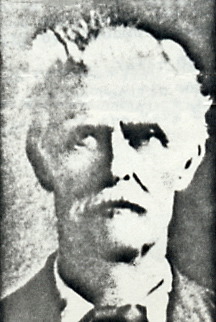

| Samuel's family details are available in my family files. |

In May, 1874, Samuel was serving in Fiji with the British forces in what became known as the Na Dawarau Campaign. The battles were waged in jungle teritory, over very varied terrain. It was recorded by James Harding, a leader of the paramilitary forces known as The King's Troops or The Native Regiment, which consisted of trained local Fijians under trained soldiers from Australia and Britain, "...in order to escape the attentions of the enemy was of necessity tortuous and difficult in the extreme, and by the time we had climbed up under cover to the back of the town we were fairly exhausted... Fairhall, with the advanced guard, swarmed over the fence, under a sharp fire from the enemy in the two upper trenches, which luckily hit no one...It was Sergeant Fairhall's dash and bravery that saved the day, for so quickly were the enemy dislodged from their entrenchments that the main body of their warriors who were lying in ambush along the lower track that they expected us to advance by were unable to get up in time to assist in the defence. The writer went on to summarise, "I cannot too highly praise Sergeant Fairhall for the cool, steady, soldierly manner in which he led his men right up into the upper trench, the enemy holding their ground till he was within a few yards of them.(Ref. 1)
A peculiar horror of Fijian warfare was that prisoners were ritually slain, cooked in earth ovens and eaten with gusto; villagers in battle areas were slaughtered for the same reason. It was quoted that "In one mass 1,000-strong attack, the enemy was so confident that they brought their womenfolk with them to hunt down fugitives and wounded and carry away the bodies of casualties for cooking."
"It was well they did," says Harding wryly, "as they were useful in carrying away their own dead and wounded..." In a later action, Harding's men found the hurriedly abandoned gruesome kits "that those ladies brought with them to carry back prime joints for home cooking."
After the peace, Samuel demobilised himself and decided to stay in Fiji, obtaining employment as a plantation engineer.
In January 1881, Samuel had written to the Governor-in-Council (John Bates Thurston) at Nasova, making a claim to a grant of land under the Agreement with the late Fijian Government. This entitled him to receive 75 acres of first class arable land in part payment for his services. He stated that he was engaged in Sydney by the representatives of the then King Cakobau as Sergeant and Drill Instructor in his Military Forces. The reply stated that the lateness of Samuel's claim precluded it from being considered.
In 1887, he married a Sydney-born local girl, Josephine Hulek, in Suva. Their children were all born in Suva.
Samuel, Josephine and their children all returned to Australia, settling finally at Lithgow, NSW, where Samuel died in 1928, aged 77. The Lithgow Mercury, in a short obituary, noted that "the late Mr Fairhall, was among troops which garrisoned Fiji, more than 5O years ago..." Josephine died in Sydney in 1944.
When the Great War of 1914-18 broke out, it was in the tradition of this fighting Fairhall family that Samuel's elder son, 22 year-old Samuel jnr should be among the early volunteers in the AIF. An original ANZAC, he was killed in action with the 13th Battalion at Gallipoli. (Ref. 2)
